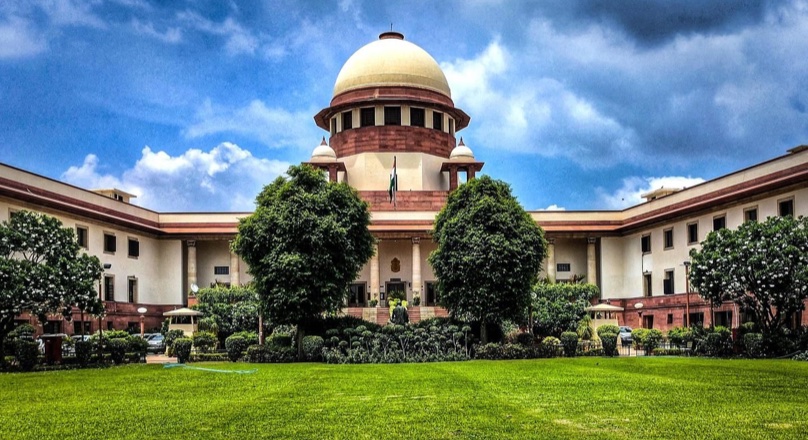The Uttar Pradesh government has approached the Supreme Court seeking permission to manage eight temples in Mathura, where advocates were earlier appointed as court receivers, until the conclusion of pending civil suits.
A Bench comprising Justice Bela Trivedi and Justice SC Sharma heard the matter on Thursday, addressing issues surrounding the appointment of advocates as receivers for these temples.
State’s Arguments for Administrative Control
Senior Advocate Navin Pahwa, appearing for the Uttar Pradesh government, urged the Supreme Court to expedite a verdict in the pending cases. He also requested that the Parishad be allowed to administer the temples directly or appoint individuals to manage daily affairs in coordination with the local community until the court resolves the disputes.
Pahwa referenced the recently enacted State Legislation aimed at preserving Mathura’s temple heritage. He emphasized that the law mandates the establishment of a State Parishad, an expert body tasked with overseeing the administration of these temples until judicial proceedings conclude. He highlighted that these temples receive substantial offerings, amounting to lakhs of rupees, necessitating competent and accountable receivers for their management.
Discussing the historic Shri Banke Bihari Temple, established in 1864, Pahwa noted that despite its compact 500-square-yard main temple area, it draws 40,000–50,000 devotees daily. The number swells to 1.5–2 lakh on weekends and exceeds five lakh during festivals. To manage the overwhelming footfall, the state had informed the Allahabad High Court in 2022 about its initiative to acquire five acres of additional land for crowd management and the construction of a dedicated corridor.
Pahwa clarified that the Uttar Pradesh government does not seek ownership or direct management of the temple premises. Instead, it aims to facilitate devotees and improve infrastructure surrounding the temple. While the High Court sanctioned the crowd-management scheme, it barred the use of temple funds for unrelated purposes. The state is now seeking Supreme Court approval to purchase additional land using temple funds in the temple’s name.
Challenges to the State’s Plea
The petition was contested by Ishwar Chanda Sharma, who was earlier appointed as a receiver/manager for a temple in Mathura. Sharma argued that the Mathura court’s order appointing him was set aside by the Allahabad High Court, which remanded the matter for fresh consideration.
During the December 2024 hearing, the Supreme Court expressed concerns over Mathura temples coming under the receivership of practicing advocates. Advocates AOR Abhikalp Pratap Singh and Kartikay, appearing for the appellants, asserted that Order 40 of the Code of Civil Procedure (CPC) grants courts discretion in appointing receivers. They contended that advocates could appropriately fulfill this role, particularly in defending suits and managing temple affairs.
However, in December, the Supreme Court opined that temples should be freed from the control of practicing advocates of Mathura courts. The Court emphasized that receivers, if necessary, should have religious inclination toward the deity and be well-versed in Vedic and Shastric traditions. It further directed that advocates and district administration officials should not be involved in temple management, urging the expeditious resolution of temple-related litigation.
Interventions and Opposition
Advocate Prachi Nirwan, representing the respondents, informed the Court that, following the Allahabad High Court’s ruling, a fresh receiver—Krishan Kumar Sharma—was appointed by the Mathura district court in September 2024, drawing a monthly remuneration of ₹20,000. She argued that since the High Court’s order had already been implemented, the state’s petition had become infructuous.
Objecting to the state’s request for managing temple funds, Nirwan cited Section 22 of the Religious Endowments Act, 1863, which prohibits government control over temple or mosque properties. She emphasized that the Mathura court dispute has remained unresolved for 25 years, urging the Supreme Court to fast-track proceedings.
Senior Advocate Dr. Subramanian Swamy also filed an application opposing the Uttar Pradesh government’s claim to administrative control over the temples. Citing Subramanian Swamy v. State of Tamil Nadu, he argued that permanent state control would violate Articles 14, 25, 26, and 31A of the Constitution, infringing on devotees’ fundamental rights.
Since Swamy’s petition was not listed for hearing on Thursday, he was not allowed to present arguments. Similarly, the Supreme Court declined to hear Senior Advocate Vibha Makhija, representing the original defendant in the temple suit, as her impleadment application had been dismissed earlier due to procedural defaults.
Conclusion
The Supreme Court’s decision on this contentious matter will have far-reaching implications for temple management in Uttar Pradesh. As the legal battle unfolds, key issues of religious autonomy, state intervention, and judicial discretion in appointing receivers remain at the forefront of the debate.



